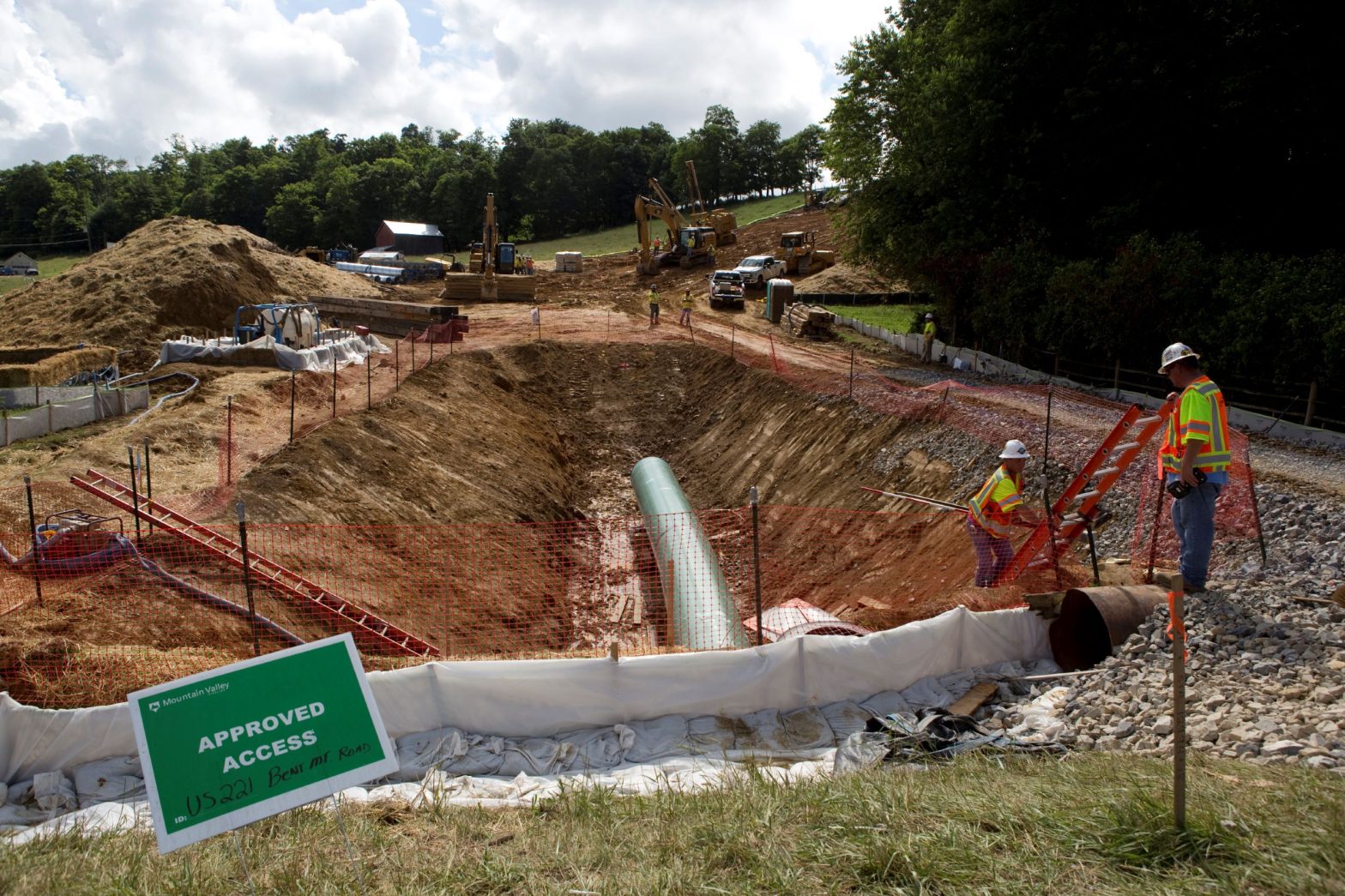Supreme Court Allows Mountain Valley Pipeline Project to Proceed

WASHINGTON — The Supreme Court on Thursday tossed a lower court order blocking the construction of the final stretch of the $6.6 billion Mountain Valley natural-gas pipeline that will run from West Virginia’s northwestern border to southern Virginia.
In a brief, unsigned order to which there were no dissents, the justices listed a stay imposed by the 4th U.S. Circuit Court of Appeals earlier this month preventing the last leg of construction in a section of the Jefferson National Forest in southern Virginia.
Backers of the pipeline, including Sen. Joe Manchin, D-W.Va., have long argued that finishing the project begun in 2018 would provide a more reliable supply of natural gas to consumers at lower prices.
Environmentalists, however, opposed the pipeline on the grounds that it could potentially damage the habitats of several endangered fish species.
In the end, it appears, the fate of the pipeline was decided on June 3, when President Joe Biden signed the Fiscal Responsibility Act of 2023, a law passed to raise the federal debt ceiling.
As a concession to Manchin, the act included a provision that ordered federal regulators to issue any and all permits needed to proceed with construction.
The same provision, Section 324, also stripped federal courts of the power to review challenges to those permits.
At the same time, it mandated that any challenge to the constitutionality of the provision be filed in the U.S. Circuit Court of Appeals for the District of Columbia.
But none of that stopped the 4th Circuit from putting the project on hold on July 10, as litigation filed by several environmental groups proceeded through the court.
In fact, the 4th Circuit was hearing oral arguments in that case Thursday morning, when the Supreme Court order was handed down.
In its petition to the court, the company building the pipeline said because the Fiscal Responsibility Act had been signed into law, the 4th Circuit didn’t have the authority to pause construction when it issued its order.
While the company conceded the environmentalists could challenge the constitutionality of Section 324, it argued — successfully — that the section requires all such challenges to go through the Circuit Court in the District of Columbia.
In the end, even the Biden administration agreed with that position, according to a filing by Solicitor General Elizabeth Prelogar.
Though the justices granted the pipeline’s request to lift the stay, they did not grant the pipeline’s plea to direct the 4th Circuit to dismiss the environmental groups’ challenges altogether, leaving the matter open “to further consideration in light of subsequent developments.”
Dan can be reached at [email protected] and @DanMcCue

























